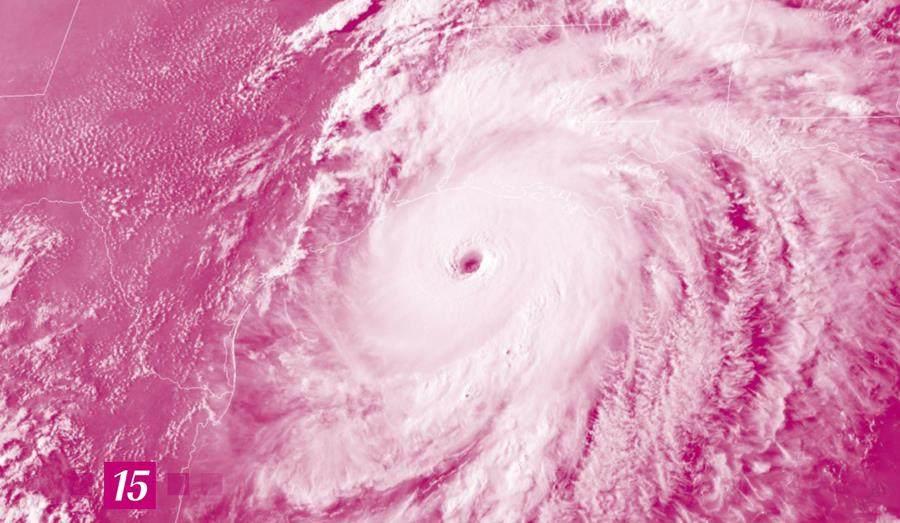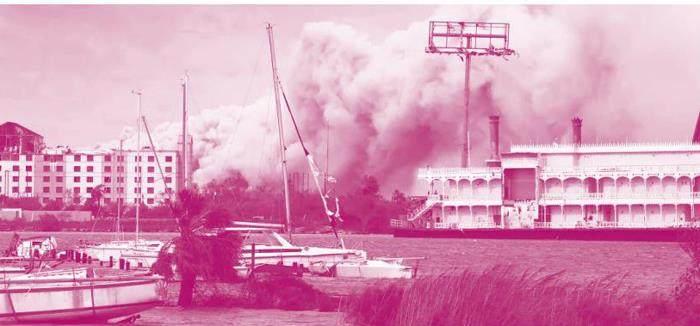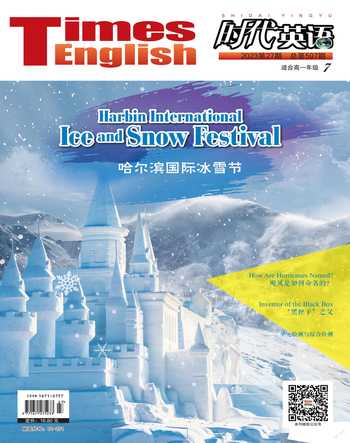How Are Hurricanes Named? 飓风是如何命名的?
2023-09-07



Before we get into the naming process, lets talk a bit about why hurricanes are named at all. Up until the 1950s, hurricanes were tracked by year and order, which turned out to be rather confusing when there was more than one storm occurring at once. Specifically, because it was hard to identify one storm from another, broadcast information was often hard to understand and left people confused or concerned with information about a storm that may not even affect them.
At first, hurricanes were named according to the phonetic alphabet, starting with A each year. The names would follow Able, Baker, Charlie, and so on. This means the first-named hurricane was Able!
The practice of giving storms personal names appears to have begun with Clement Wragge, an Australian meteorologist who in the 1890s entertained himself by naming storms after women, mythical figures, and politicians that he didnt like. The modern system of using personal names developed during World War II, when meteorologists began using womens names—often those of wives or girlfriends. Short and quickly understood, names were easier to transmit over the radio and easier to keep straight if there was more than one storm in a given area. The system was formalized in 1953 when the American National Weather Service put together an alphabetical list of female names to be used for storms in the Atlantic basin. Male names were added to the list in 1979.
在談论命名过程之前,让我们先谈谈为什么要给飓风命名。直到20世纪50年代,飓风都是按年份和顺序进行排列的,当不止一场风暴同时发生时,情况就变得相当混乱。具体来说,由于很难将一场风暴与另一场风暴区分开来,广播信息通常也难以理解,人们会对可能不会影响他们的风暴消息感到困惑或担心。
起初,飓风是根据语音字母命名的,每年以A开头。名字顺着埃布尔(Able)、拜克(Baker)、查理(Charlie)往后排。这意味着第一个得到命名的飓风被称为埃布尔!
澳大利亚气象学家克莱门特·瓦格可能是第一个用人名给风暴命名的人。在19世纪90年代,他自娱自乐,以他不喜欢的女性、神话人物和政治家的名字来命名风暴。在二战期间,使用人名的现代命名系统发展起来了。当时,气象学家开始使用女性的名字(给飓风命名),通常是妻子或女朋友的名字。简短易懂的名称更容易通过广播传播出去,在面对特定区域内不止一场风暴时,也能更容易保持准确性。该命名系统于1953年正式形成,当时美国国家气象局整理了一份按字母顺序排列的女性名字列表,用于给大西洋盆地的风暴命名。1979年,列表中开始添加男性名字。
So now that weve got some history, how do they actually name the hurricanes?
A special committee of the World Meteorological Organization develops lists of names to be used for hurricane. The name must be easily understood and short. Additionally, they must be culturally sensitive as they will be spoken in several different languages. For the Atlantic basin there are six alphabetical lists of 21 names each, and the lists are recycled every six years. So it is very likely, for example, that many of the names on the 2018 list will recur in 2024. For the Western Pacific and South China Sea basin, where there are a wider variety of languages spoken, names on the lists are contributed by countries in the region. If a hurricane or typhoon is especially destructive, that name will be retired from the list, such as Katrina (2005), Sandy (2012), Michael (2018), Ida (2021) and Ian (2022).
Despite the fact that using human names might seem comical, the use of these names helps to keep people protected and informed. When it comes to spreading information, it is vital that the information is accurate, easily understood, and efficient in order to keep the public informed. The hurricane naming process is a great example of this distribution of information.
既然我们已经了解了一些有关风暴名称的历史,那么实际上飓风是如何命名的呢?
世界气象组织的一个特别委员会制定了飓风名称列表。首先,这些名称必须易于理解且简短。此外,因为会被多种不同语言传播出去,此类命名还要具备文化敏感性。大西洋盆地有六个按字母顺序排列的命名列表,每个列表有21个名称,并且列表每六年循环一次。因此2018年飓风名单上的许多名字,很可能会在2024年再次出现。对于使用多种语言的西太平洋和南海盆地,命名名单上的名字则由该地区的国家提供。如果飓风或台风特别具有破坏性,则该名称将从列表中删除,如卡特里娜(2005年)、桑迪(2012年)、迈克尔(2018年)、艾达(2021年)和伊恩(2022年)。
尽管使用人名命名飓风可能看起来很滑稽,但使用这些名字有助于保护人们并让人们了解情况。在信息的传播过程中,为了让公众了解情况,信息的准确度、通俗易懂和有效性至关重要。飓风的命名过程就是信息传播方面一个很好的例子。
Word Bank
broadcast /'br??dkɑ?st/ n. 广播节目;电视节目
transmit /tr?ns'm?t/ v. 輸送;播送
recur /r?'k??(r)/ v. 再发生;反复出现
distribution /'d?str?'bju??n/ n. 分发;分送
